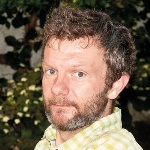Royal Society
University Research Fellowships
- Award winner: Pascal-Antoine Christin
- Institution: University of Sheffield
- Value: £451,518
Fine-scale genetics of large-scale evolutionary innovation
- Award winner: Simone De Liberato
- Institution: University of Southampton
- Value: £446,713
Cavity QED with artificial atoms: towards next-generation integrated THz emitters
- Award winner: David Jennings
- Institution: Imperial College London
- Value: £467,512
Novel quantum resources and the analysis of exotic quantum field systems
- Award winner: Gunnar Moller
- Institution: University of Cambridge
- Value: £469,133
Simulating strong correlations in unconventionally ordered systems
Leverhulme Trust
Research Project Grants
Social sciences
- Award winner: Leon Watts
- Institution: University of Bath
- Value: £135,401
Investing care and appreciating effort in the use of personal communication technology
Major Research Fellowships
- Award winner: James Harold Barrett
- Institution: University of Cambridge
- Value: £160,061
Northern journeys: reimagining the medieval revolution and its aftermath
- Award winner: Miranda Fricker
- Institution: University of Sheffield
- Value: £99,204
Blame and forgiveness: negotiating shared moral understanding
- Award winner: Kevin Passmore
- Institution: Cardiff University
- Value: £130,538
The Maginot Line in history, culture and memory
- Award winner: Nigel Fabb
- Institution: University of Strathclyde
- Value: £142,777
Epiphanies in literature: a psychological and literary linguistic account
National Institute for Health Research
Health Services and Delivery Research Programme
- Award winner: Jo Rycroft-Malone
- Institution: Bangor University
- Value: £149,269
Improving skills and care standards in the clinical support workforce: a realist synthesis of workforce development interventions
- Award winner: Rupert Pearse
- Institution: Queen Mary University of London
- Value: £1,236,310
Enhanced peri-operative care for high-risk patients (EPOCH) trial: a stepped wedge randomised cluster trial of an intervention to improve quality of care for patients undergoing emergency laparotomy
In detail

Public Health Research programme
Award winner: Christopher Bonell
Institution: Institute of Education, University of London
Value: £233,232
The effects of positive youth development interventions on substance use, violence and inequalities: systematic review of theories of change, processes and outcomes
This project is investigating whether community-based youth work programmes that focus on developing positives such as self-esteem and social confidence rather than on avoiding risk are effective in reducing violence and the use of substances such as cigarettes, alcohol and drugs. “There has already been a review of these sorts of interventions’ effects on sexual health, but not on violence and substance use,” Christopher Bonell said. A lot of money is being invested in such schemes, and he hopes to discover if this is “likely to be a good use of resources”.
Register to continue
Why register?
- Registration is free and only takes a moment
- Once registered, you can read 3 articles a month
- Sign up for our newsletter
Subscribe
Or subscribe for unlimited access to:
- Unlimited access to news, views, insights & reviews
- Digital editions
- Digital access to THE’s university and college rankings analysis
Already registered or a current subscriber?

